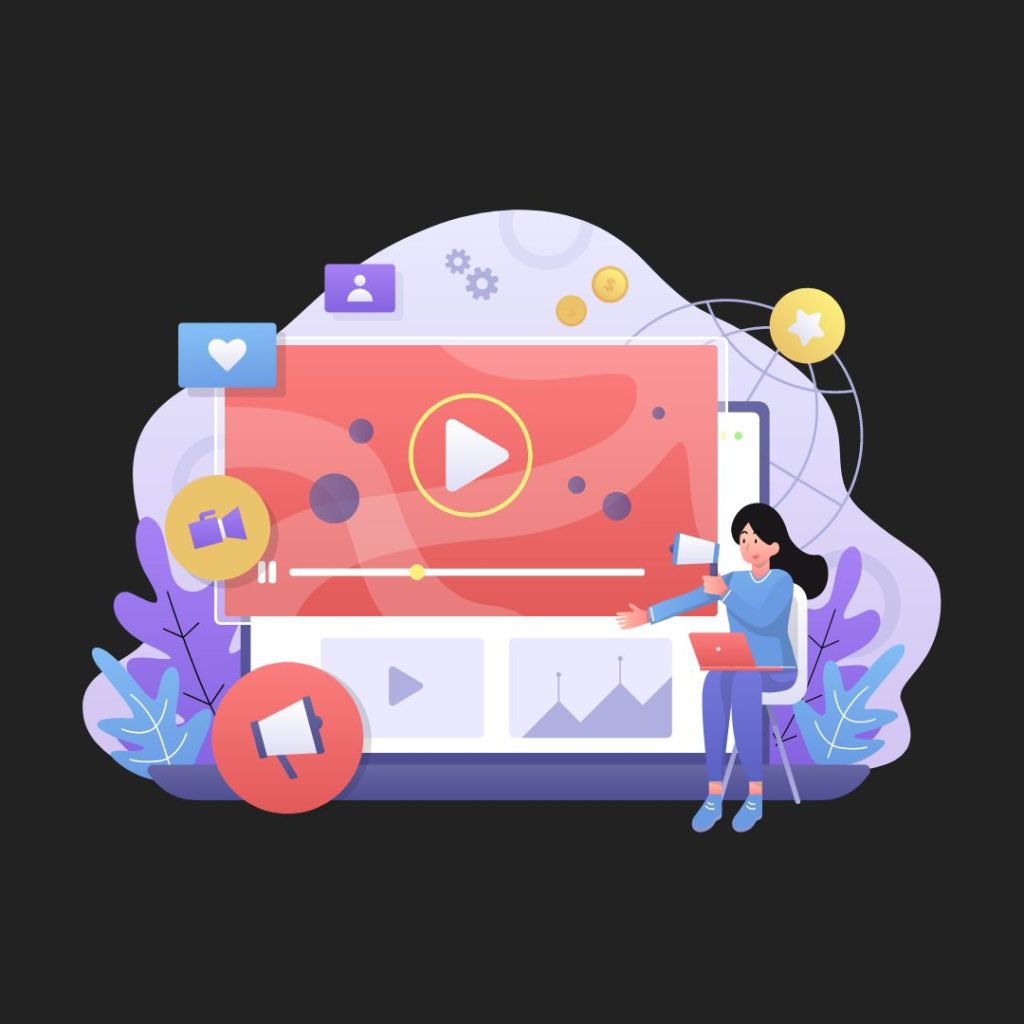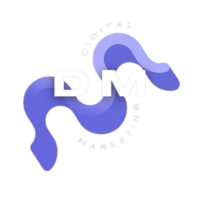The Growing Role of AI in Video Marketing: Creating Engaging Content
In today’s rapidly evolving digital landscape, video marketing has emerged as a powerful tool for businesses to engage with their target audience. With the growing popularity of video content on social media platforms, businesses are increasingly investing in video marketing to capture their audience’s attention and drive conversions. The integration of artificial intelligence (AI) into video marketing is transforming the way businesses create, distribute, and analyze video content, making it more engaging, personalized, and effective than ever before. In this article, we’ll explore the growing role of AI in video marketing and how it’s helping businesses create more engaging content.
AI-Driven Video Creation
AI has made significant strides in automating the video creation process, allowing businesses to produce high-quality content with minimal effort and resources. Here are some ways AI is revolutionizing video creation:
Automated video editing: AI-powered video editing tools can automatically analyze raw footage, identify the most important scenes, and stitch them together to create a coherent and engaging narrative. This not only saves time but also ensures that the final video is polished and professional.
Dynamic templates: AI-driven video platforms provide dynamic templates that can be easily customized to suit a brand’s unique needs and preferences. These templates are designed to optimize viewer engagement by incorporating best practices in video design, pacing, and storytelling.
AI-generated visuals: Advanced AI algorithms can generate realistic images and animations, which can be used to create engaging visuals for video content. This technology can be particularly useful for businesses that lack the resources to create custom visuals or animations from scratch.
Voice synthesis and lip-syncing: AI can synthesize natural-sounding voiceovers and even generate lip-syncing animations for characters in a video. This eliminates the need for professional voice actors and makes it easier for businesses to create engaging videos with a consistent brand voice.
AI-Powered Video Personalization
Personalization has become a key differentiator in digital marketing, as consumers increasingly expect content that is tailored to their unique interests and preferences. AI is enabling businesses to deliver personalized video experiences at scale, enhancing viewer engagement and driving better results. Here’s how:
Individualized content recommendations: AI can analyze a viewer’s browsing history, demographic information, and other data points to recommend relevant video content. This ensures that each viewer receives a personalized content experience, increasing the likelihood that they will engage with and share the video.
Dynamic video content: AI can generate dynamic video content that adapts to a viewer’s preferences in real-time. For example, an AI-powered video platform can create multiple versions of a promotional video, each featuring a different product, and dynamically serve the most relevant version to each viewer based on their interests and browsing history.
Interactive videos: AI can enable businesses to create interactive videos that allow viewers to actively engage with the content. For example, an interactive video might include clickable elements that allow viewers to learn more about a product, sign up for a newsletter, or make a purchase directly within the video.
AI-Enhanced Video Distribution and Promotion
In addition to streamlining the video creation process and enabling personalized experiences, AI can also help businesses optimize their video distribution and promotion strategies. Here’s how:
Optimal video length and format: AI algorithms can analyze viewer data and determine the optimal video length and format for a specific audience or platform, ensuring that the content is designed for maximum engagement.
Intelligent targeting: AI can help businesses identify the most relevant audience segments for their video content, ensuring that their promotional efforts are targeted and efficient.
Sentiment analysis: AI-powered sentiment analysis tools can monitor social media conversations and other online discussions to identify how viewers are responding to a brand’s video content. This can help businesses fine-tune their messaging and identify opportunities for improvement.
Predictive analytics: AI-driven predictive analytics can help businesses forecast the performance of their video content, allowing them to optimize their video marketing strategy and allocate resources more effectively.
Automated A/B testing: AI can streamline the process of A/B testing, helping businesses quickly identify the most effective versions of their video content and adjust their marketing strategy accordingly.
Measuring the Impact of AI-Driven Video Marketing
One of the key benefits of incorporating AI into video marketing is the ability to measure and analyze the impact of video content more accurately and comprehensively. Here are some ways AI can help businesses track the performance of their video marketing efforts:

Video engagement metrics: AI can provide detailed insights into how viewers are engaging with video content, including data on watch time, completion rates, click-through rates, and more. This information can help businesses understand what aspects of their video content are resonating with their audience and make data-driven decisions to optimize future content.
Audience segmentation: AI can help businesses segment their audience based on demographics, interests, and behaviors, enabling them to better understand the preferences and motivations of different viewer groups.
Conversion tracking: AI can track the relationship between video views and conversions, such as sign-ups or sales, allowing businesses to measure the return on investment (ROI) of their video marketing efforts and optimize their strategies accordingly.
Optimizing Video Marketing with AI-Generated Scripts and Storytelling
AI-generated scripts: Writing compelling video scripts can be a time-consuming and challenging task for businesses. AI-powered tools can analyze existing content, brand guidelines, and target audience preferences to generate engaging video scripts tailored to specific marketing objectives.
Emotion-driven storytelling: AI algorithms can identify and analyze the emotional impact of various storytelling elements, such as music, pacing, and visual composition. This information allows businesses to create emotionally engaging video content that resonates with their target audience and drives desired actions.
The Future of AI in Video Marketing: Emerging Trends and Technologies
As AI technology continues to advance, new opportunities and trends are emerging in the field of video marketing. Here are some developments to watch for in the coming years:
Virtual and augmented reality: AI-driven virtual and augmented reality (VR/AR) experiences are gaining popularity as a means of engaging audiences with immersive, interactive content. As AI technology improves, businesses can expect to see more opportunities to incorporate VR/AR into their video marketing strategies.
Deepfake technology: Deepfake technology uses AI to generate highly realistic videos of people saying or doing things they never actually did. While this technology has sparked concerns about potential misuse, it also offers exciting possibilities for video marketing, such as creating lifelike product demonstrations or celebrity endorsements.
AI-driven video analytics: Advanced AI algorithms can analyze video content at a granular level, identifying patterns and trends that might not be apparent to the human eye. These insights can help businesses optimize their video marketing strategies and create content that resonates with their audience on a deeper level.
Real-time video optimization: AI has the potential to optimize video content in real-time based on viewer feedback and engagement data. This could enable businesses to adapt their video marketing strategies on the fly, ensuring maximum impact and ROI.
Multilingual video content: AI-powered language translation and voice synthesis tools can make it easier for businesses to create multilingual video content, allowing them to reach a global audience without the need for costly and time-consuming manual translation.
Challenges and Considerations in AI-Driven Video Marketing
While the integration of AI into video marketing offers many benefits, it also presents some challenges and considerations for businesses:
Ethical concerns: As with any AI-driven technology, ethical concerns arise, particularly around privacy, data security, and potential misuse of deepfake technology. Businesses must carefully consider these issues when implementing AI-driven video marketing strategies.
Maintaining authenticity and brand voice: While AI can generate video content quickly and efficiently, businesses must ensure that the content remains authentic and consistent with their brand voice. This may require a human touch in the form of creative input and oversight.
Over-reliance on automation: While AI-driven tools can streamline the video marketing process, businesses should avoid over-reliance on automation. Striking the right balance between AI-driven efficiency and human creativity is crucial for creating engaging, high-quality content that truly resonates with the target audience.

Conclusion
The growing role of AI in video marketing presents exciting opportunities for businesses to create engaging, personalized content that captivates their audience and drives results. By leveraging AI-driven video creation, personalization, distribution, analytics, and emerging trends, businesses can stay ahead of the competition and create compelling video marketing campaigns that resonate with their target audience. As AI technology continues to advance, businesses that embrace its potential will be well-positioned to succeed in the ever-evolving digital landscape.
FAQ's
- How is AI revolutionizing video marketing?
AI is transforming video marketing by automating the video creation process, enabling personalized experiences, optimizing distribution and promotion strategies, and providing detailed analytics to measure the impact of video content.
- What are some examples of AI-driven video creation tools?
Examples include automated video editing tools, dynamic templates, AI-generated visuals, and voice synthesis with lip-syncing.
- How does AI enable personalized video experiences?
AI allows businesses to deliver personalized video experiences through individualized content recommendations, dynamic video content, and interactive videos.
- What are some ways AI can optimize video distribution and promotion?
AI can help businesses optimize video length and format, intelligently target audience segments, conduct sentiment analysis, utilize predictive analytics, and automate A/B testing.
- How can AI help businesses measure the impact of their video marketing efforts?
AI can provide detailed video engagement metrics, audience segmentation, and conversion tracking, allowing businesses to make data-driven decisions to optimize their video marketing strategies.
Follow me for more
Ask me any questions and I will get back to you in less than 24h.






